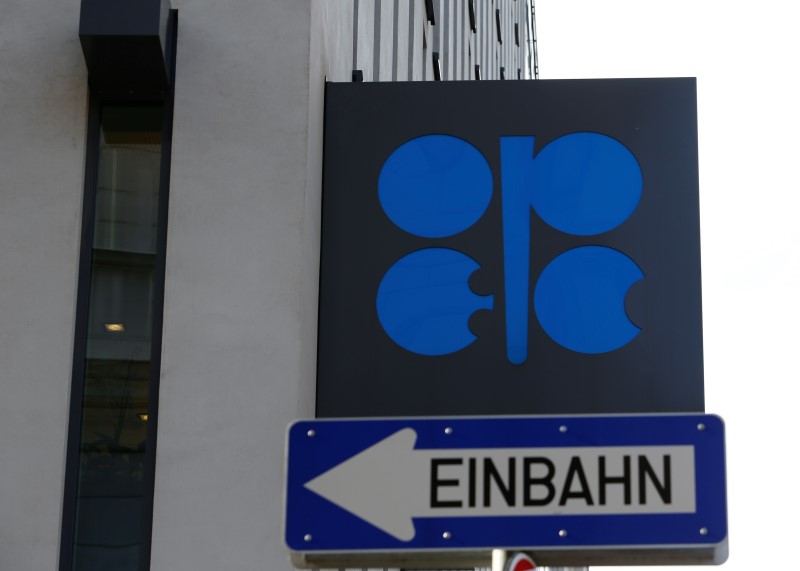By Alex Lawler
LONDON (Reuters) - OPEC's oil output is likely in July to reach its highest in recent history, a Reuters survey found on Friday, as Iraq pumps more and Nigeria manages to export additional crude despite militant attacks on oil installations.
Top OPEC exporter Saudi Arabia has kept output close to a record high, the survey found, as it meets seasonally higher domestic demand and focuses on maintaining market share rather than trimming supply to boost prices.
Supply from the Organization of the Petroleum Exporting Countries has risen to 33.41 million barrels per day (bpd) in July from a revised 33.31 million bpd in June, according to the survey based on shipping data and information from industry sources.
The increase in OPEC production has added to downward pressure on prices. Oil (LCOc1) has fallen from a 2016 high near $53 a barrel in June to $42 as of Friday, pressured also by concern about weaker demand.
OPEC's production could rise even further should talks to reopen some of Libya's oil facilities succeed. Conflict has been keeping Libyan output at a fraction of the pre-war rate.
"This could shortly release more oil into an already abundantly supplied market," Carsten Fritsch of Commerzbank (DE:CBKG) said, although earlier hopes of a restart have not been realized.
"It therefore remains to be seen whether this time will be different."
OPEC's output has climbed due to the return of former member Indonesia in 2015 and another, Gabon, this month, skewing historical comparisons. July's supply from the remaining members, at 32.46 million bpd, is the highest in Reuters survey records, starting in 1997.
Supply has also risen since OPEC abandoned in 2014 its historic role of cutting supply to prop up prices as major producers Saudi Arabia, Iraq and Iran pump more.
In July, the biggest increase of 90,000 bpd has come from Iraq, which has exported more barrels from its southern and northern ports despite a pipeline leak that restrained southern exports.
Nigeria, where output has been hit by militant attacks on oil facilities, has nonetheless exported slightly more in July than June, the survey found, although crude exports remain significantly below the 2 million bpd seen in early 2016.
Output in two major producers is largely stable. Iran, OPEC's fastest-growing source of supply expansion this year after the lifting of Western sanctions, has pumped only 20,000 bpd more as the growth rate tops out for now, the survey found.
Saudi output in July was assessed at 10.50 million bpd, close to June's revised rate and the record 10.56 million bpd reached in June last year.
"Exports are down a bit, offset by higher direct burn and slightly higher refinery runs," said an industry source who monitors Saudi output. "For the time being, I'm sticking to my numbers, which suggest supply is flat."
Of countries with lower production, Libyan output edged down due to the stoppage of a major oilfield, Sarir.
Venezuela's supply is under downward pressure from its cash crunch, slipping further in July.

The Reuters survey is based on shipping data provided by external sources, Thomson Reuters flows data, and information provided by sources at oil companies, OPEC and consulting firms.